2022.05.09
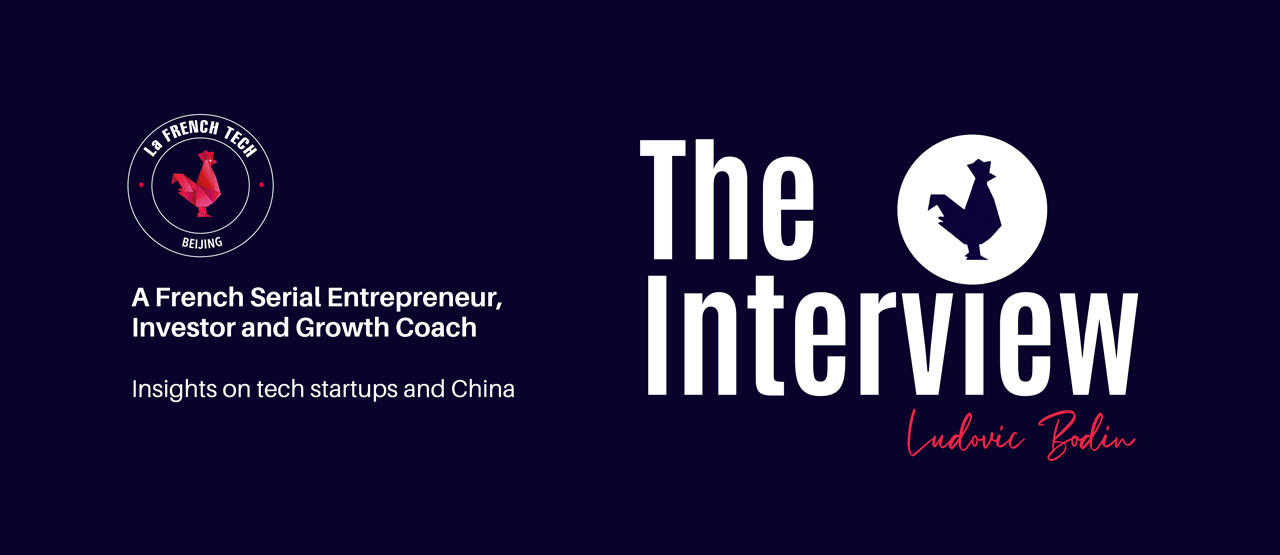
By Nil Larom & Yannick Podgorski
The FrenchTech Beijing team sat with Ludovic Bodin, a French serial entrepreneur, investor, and author, to get his insights on tech startups and China. Ludovic, an entrepreneur since his early 20s, has amassed an impressive track record through his own ventures in web & gaming.About three years ago, he made the shift from entrepreneur to investor. He started investing and shared his insights on how small teams can achieve a huge impact through his book, “Atomic Scaling”, and associated workshops. As an investor, he set himself apart thanks to two companies reaching Unicorns status and more coming.
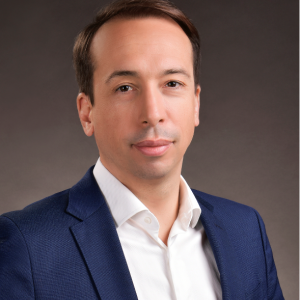
Ludovic is a global citizen by any standard, having lived and worked in North America, Latin America, around Europe, and Asia. He has lived in China since 2004 while continuing to travel extensively between Silicon Valley & China for eight years and then China & Europe.He has been an Entrepreneur in tech for the past 20 years, including ten years in gaming and three years as a tech investor focusing on Series A & B financing with no geographical restriction. Though his first fund was established in Europe 3 years ago, Covid-19 caused him to reconsider his operations, and he opted for a different investment model.Author of “Atomic Scaling”, due to come out in Q4 of this year, he runs a 7-week workshop series under the same banner, for startups using his own “3P3R” method. He shares insights on High-Performing Teams in the gaming & tech industries, how small teams with huge impact think & operate. He also runs advanced workshops on Live Operations, the secret to gaming industries exploding revenue in the last ten years; workshops on getting ready for Series A & B rounds, with clients ranging from large companies like Unilever & Mercedes to conglomerates in South East Asia and Startups.His focus: not just being a passive investor who looks at pitch decks, but rather getting involved in advising and scaling the companies he invests in. His portfolio consists of a large span of applications on three continents, ranging from AI-platform to new hydrogen car companies. Two of which reached the status of Unicorn, meaning valuations surpassing $1Billion.
Among his existing investments:
There are three key aspects any entrepreneur should possess:
These traits make an entrepreneur better at raising money, hiring talent, and forging partnerships. He refers to this approach as the “Windshield Wiper,” constantly shifting from being story-teller to data-driven to story-teller, gradually clearing up the view ahead while driving fast in heavy rain as companies scale up.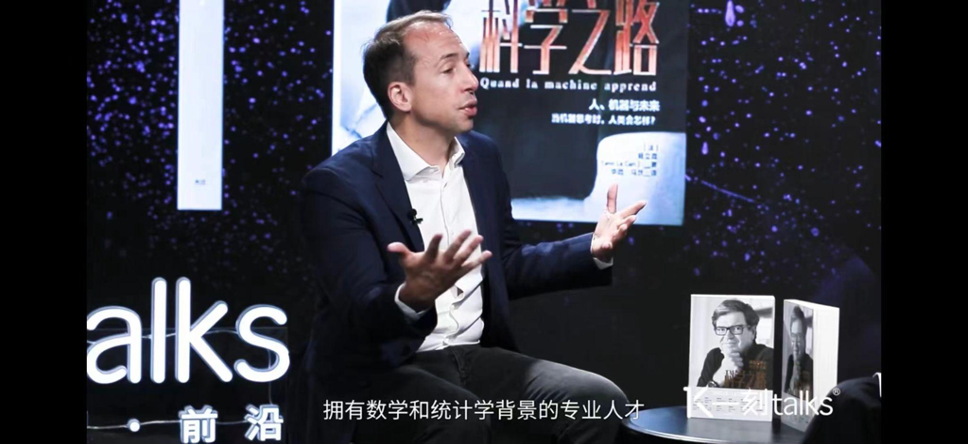
Ludovic has invested in China, with some already achieving Unicorn status. Most of his involvement in startups spans across the globe, from New York City to Palo Alto, Paris to Malta, Beijing, Shenzhen, Hong Kong, or South East Asia – and he has shared his thoughts about where startups can benefit from and should focus on when in China.
Back in 2016, French President Emmanuel Macron set the target of reaching 25 unicorns by 2025 and was responsible for the birth of our organization, La French Tech, of which Ludovic was co-founder in Beijing and President for many years. At the start of the year 2022, the target has been surpassed three years ahead of the deadline, a token of French startups’ accelerating success across the globe.If one looks at France and French entrepreneurs, the gap in startup success between France and China in the last years is narrowing, from the perspective that the French have slowly acquired the capability to scale startups quickly.
One of the main differences between French and Chinese companies is that French companies don’t focus on their home market alone anymore, but rather on Europe, the US or globally. French entrepreneurs are wildly successful in the US. According to Ludovic, there are more tech entrepreneurs from the EU and Israel in China than there are American entrepreneurs. The local Chinese ecosystem has the capability to build decacorns like Tencent and Alibaba, but these companies don’t scale well outside of China.Succeeding in China is difficult; even Microsoft has only a small fraction of its revenue generated from China despite being a significant market. From a market share proportion perspective, French video game companies like Voodoo should generate 30% of its revenue in China, yet only a tiny fraction of that, likely 2%, is achieved even if it counts Tencent as an investor.It is easier to succeed as a European entrepreneur in the EU and the World than a Chinese entrepreneur in China, and will involve less stress. Competition in China is more demanding, and the ratio of ressources versus pressure is better as an EU entrepreneur.
Given all these difficulties in capturing Chinese market share, what should startups look forward to then? One of the most significant benefits would be capital; China represents 50% of investment capital across Asia. Europe didn’t have Growth Funds not too long ago, which Ludovic found surprising, considering his years of exposure to them in Asia.Nowadays, EU entrepreneurs can benefit from EU capital, US capital, Asian capital, and the future is getting brighter for EU entrepreneurs. Chinese entrepreneurs have a better chance if they first develop in China, where they have a team and access to human and financial resources as well as an understanding of their local market.His view of French entrepreneurs in China is that they would have a low chance to succeed in scaling compared to a Chinese company, but should still have a presence here, learn from the local market, and take advantage of what China has to offer, namely capital, market partner and talent.
In China, startups have access to talent in product development, which are generally more skilled and efficient than EU product managers. Important to note is that foreigners can’t scale a team here like a local can.Foreign companies can look for capital and partners in China; they need to look for reliable people to manage their interests in China, but have to realize that only locals can truly grow here. Many French companies, both startups and mature, mistakenly send Chinese people from France to manage operations in China, forgetting they aren’t true locals. It is equally important to choose the right local partners, in particular people with an appetite for tech (license technology).His previous gaming startup, CMune, was based in China and Korea and headquartered in HK, with a split half internationally and half in China. The staff was primarily based out of Beijing and were all graduates from the top local universities. He also has a friend who sold his company to Alibaba; while most of the revenue was generated abroad.Ludovic notes: “where else other than China could you imagine hiring 2000 people within 5 years; here it is much easier to develop and scale fast”.
Ludovic recalls scenarios turning down investors for various reasons, including Facebook on a gaming project and a VC on another project; Typical factors for refusal can range from personal to business aspects, such as excessive dilution and loss of control. He summarizes his advice to entrepreneurs in three main points:Having financial projections: “Good entrepreneurs should be able to, at any point in their growth, have financial projections and show they are data-driven, even if they haven’t started selling yet.”The List: Most entrepreneurs who have never raised money and don’t know who they will meet to raise money, who will make the introductions end up shooting past their financing deadlines. Good entrepreneurs have a deck, financial projections, as well as a list of targeted investors or the related network.The Plan: reduce the time on the road spent fundraising by making your company famous amongst investors first, so they reach out to you as opposed to chasing after them. The moment you start fundraising, it’s a race and it affects business development and morale.
French Tech Interview Series With Ludovic Bodin

About Ludovic Bodin

- Video games: Lila Games in Palo Alto, CA in US
- Sports Fans Engagement: Socios/Chiliz valued at $1.5B-$2B
- Live Streaming & Entertainment: Asia Innovation is based in Beijing and headed by the former CEO of Zynga China, a multi-billion valuation also heading for Nasdaq IPO
- Fintech: Fraction, a real estate fractionalization operating in South East Asia; a neo-bank (think Revolut for Asia); a multi-chain NFT marketplace, and a crypto algorithmic trading platform
- AI PaaS (Platform-as-a-Service): Aleia with applications focus in transport, healthcare, cybersecurity, and fintech
- New car company: Hopium, think Tesla of Hydrogen, recently IPO on EuroNext with the youngest CEO on the index
- Longevity: Novos, based in New York
- E-commerce fashion: a Shenzhen based company: co-founded by Chinese serial entrepreneur Li Song who brought ChinaHR (sold to Monster), Zhenai (sold to Match.com), leveraging AI from the creation to the distribution of fashion clothing
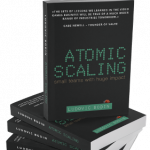
Advice to Entrepreneur
- Ensuring the alignment of all the team members around the mission and how to execute it, or as he calls it, the “Playbook”
- Being a good storyteller, as selling the vision to the team and investors is critical to fuel growth
- A clear Business Operating System; means to what extent the entrepreneur is systematically building a data-driven or prediction-driven organization. A key is to measure the spread between a set of hypotheses and reality and systematically reduce that spread. This process involves tracking every aspect of operations, including hiring practices, customer acquisition, sales cold call metrics, and a proper understanding of financial concepts such as CAC and LTV. Then this intelligence must be shared throughout the company, so all are on the same page. Some would call this “radical transparency.” Gaming companies but also companies like Amazon & Tesla, are probably among the best at monitoring and sharing these internal metrics.

Growth: China, startups foreign and domestic
- A growing number of French Unicorns
- Market differences
- Capital
- Talent
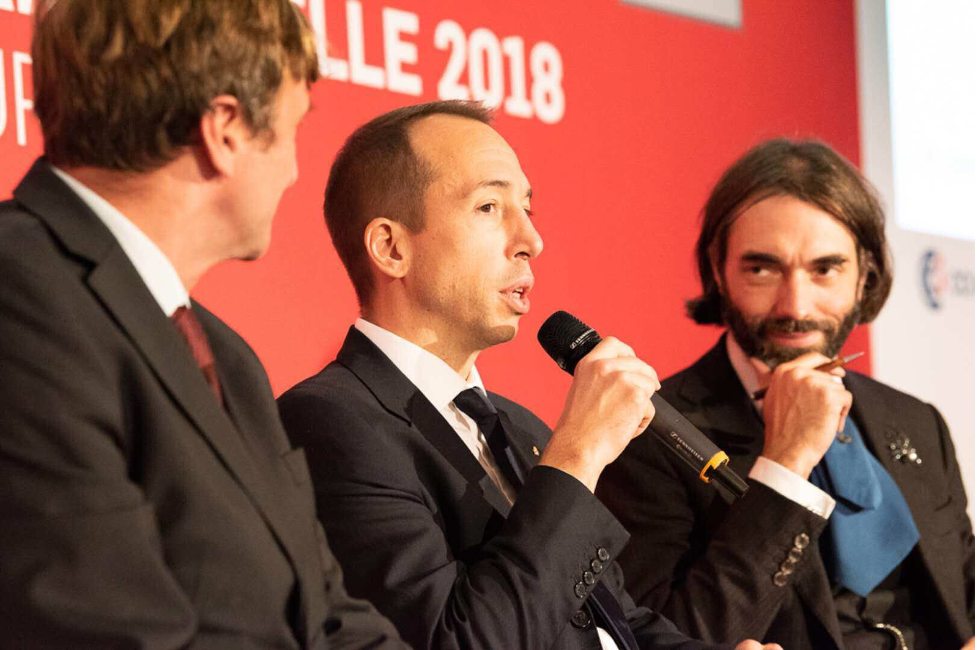
Working with Investors

Credits: Nil Larom & Yannick Podgorski (text), Caline Chong (article), Goncalves Alexandre digital-space.cn (illustrations), Dragos Cacio crelong.com (illustrations)


